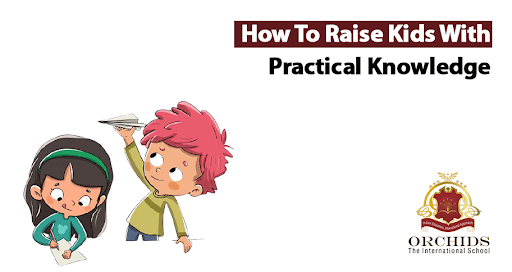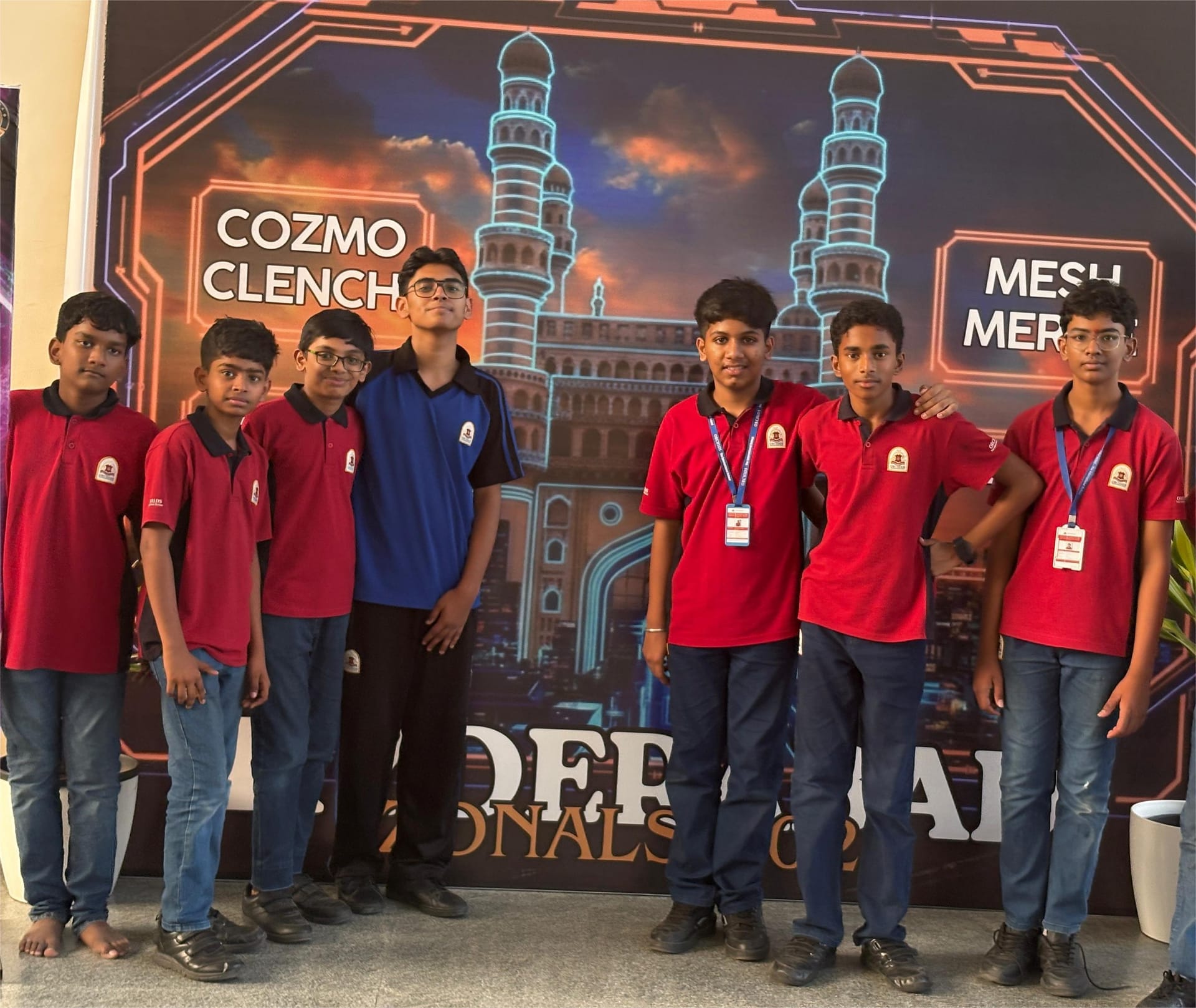What is Practical Knowledge and Why It Is Important For Children?
By orchidadmin |
Date 05-09-2023

Table of Contents
Admissions Open for
Introduction
Practical knowledge is a wide-ranging term that can be defined in many ways. However, the one thing all of these definitions have in common is that they are practical and hands-on. It has been proven time and again to be an invaluable asset for any child, no matter what their future career path might be.
The following blog post will explore how this type of knowledge benefits your children and why it should be encouraged from a young age!
What is Practical knowledge?
Practical knowledge includes math, science, and technology skills that are needed in everyday life. It can be learned through hands-on activities such as building something or exploring how things work. It is important because it helps children to become more independent thinkers who can solve problems on their own and make good choices for themselves.
It means practical skills. Practically speaking, this means being able to do things that apply and have an impact on one’s life or society as a whole. It also includes making good decisions about personal matters such as education, career path, and more. This kind of knowledge (practical) makes our children be people who can think independently, make their own choices, and take responsibility for themselves.
Such knowledge is stuff that your kids will use on a day-to-day basis to make their own choices and take responsibility for themselves. Practically speaking, it means being able to figure out what needs doing – no matter how small the task may seem, like washing dishes or taking care of pets. Practically speaking, this also includes making healthy decisions about food intake and activity levels.
What Is STEM and How is it Important for Gaining Practical Knowledge?

STEM stands for Science, Technology, Engineering, and Math. These subjects are given equal emphasis in education today because they all play a part in the future of our world’s development. This means teaching kids about recycling waste materials from one industry into raw materials used by another industry (such as transforming plastic bottles into new plastic products). Practically speaking this also means being able to use critical thinking skills
Practical knowledge also means being able to figure out how a machine works enough that you can fix it when it breaks. That’s why, STEM is important because if we don’t equip our children with the skills needed for these fields, they may not be prepared for their future careers or opportunities in life.
What Will Your Child Learn from Practical Knowledge?
Children are born naturally curious and inquisitive creatures who love to explore and experiment, but as they grow older, some of those natural tendencies often get discouraged by time constraints on school schedules or social obligations outside of class, which leaves them less motivated to continue learning about concepts that have practical uses in their lives every day like math, science, technology engineering and more!.
Practical Knowledge is a new approach to teaching and learning which uses the skills needed for these fields but goes one step further by preparing children with it so they may not be prepared for their future careers or opportunities in life.
PK offers an engaging way of developing critical skills that are fundamental to success in college and career. Practically anyone can teach PK because it requires no special training other than knowing how to use technology as well as having some content expertise around STEM subjects.
How to Increase the Practical Knowledge of Children?
Following are the tips to increase the PK of children:
- -Involve your kids in different types of small projects then it may be a science project, math project, or arts and crafts project.
- -Create a project notebook where your children can take notes and write about their experiences.
- -Have them keep an art or craft box of supplies so they have everything they need to make something when the mood strikes.
- -Keep instructions for basic tasks such as how to mix paint colors, how to string beads on wire, how to measure ingredients in baking recipes, and more on hand for easy reference any time you want it.
Which Skills Get Enhanced Through Practical Knowledge?
By following ways, practical knowledge helps children to improve their skills:
Enhances Children’s Abilities
Practical knowledge enhances children’s abilities to plan and execute tasks.
Teaches Them How the World Works
It can also help your child learn about how the world works, through identifying patterns and solving problems.
Helps Child Develop Skills
It will also help your child to develop a toolbox of skills. These are things that they need to make something when the mood strikes.
Help Children Set Goals
It can also help children learn how to set goals and work towards them. Practical skills are important when your child has a lot of ideas about what they want, but you don’t have the time or money for all those things.
It Helps Kid Learn Different Language
Practical knowledge is not just limited to hands-on skill sets either; it extends into language as well! For example, learning how to use words like “stop” and “go” will prepare them for crossing streets safely one day.”
Help Children Develop Skills
It helps children develop their skills in different areas that range from practical tasks such as following instructions written down by adults to more abstract concepts such as identifying patterns through problem-solving.
Conclusion
Practical knowledge is important for children to learn from an early age. Teaching them skills like how to cook, do laundry, and balance a checkbook can help prepare them for adulthood while also giving you as parents the peace of mind that they will be more self-sufficient than other kids in their class. We hope this blog post has given you some food for thought about what your child might need to know beyond just math and reading. If there are specific topics that we haven’t covered here or if you have any questions at all please let us know!
Also Read:
10 ways to manage preschoolers at home during online classes.
CBSE Schools In Popular Cities
- CBSE Schools in Bangalore
- CBSE Schools in Mumbai
- CBSE Schools in Pune
- CBSE Schools in Hyderabad
- CBSE Schools in Chennai
- CBSE Schools in Gurgaon
- CBSE Schools in Kolkata
- CBSE Schools in Indore
- CBSE Schools in Sonipat
- CBSE Schools in Delhi
- CBSE Schools in Rohtak
- CBSE Schools in Bhopal
- CBSE Schools in Aurangabad
- CBSE Schools in Jabalpur
- CBSE Schools in Jaipur
- CBSE Schools in Jodhpur
- CBSE Schools in Nagpur
- CBSE Schools in Ahmednagar
- CBSE School In Tumkur

Call Us to know more about Orchids
Swipe Up

















